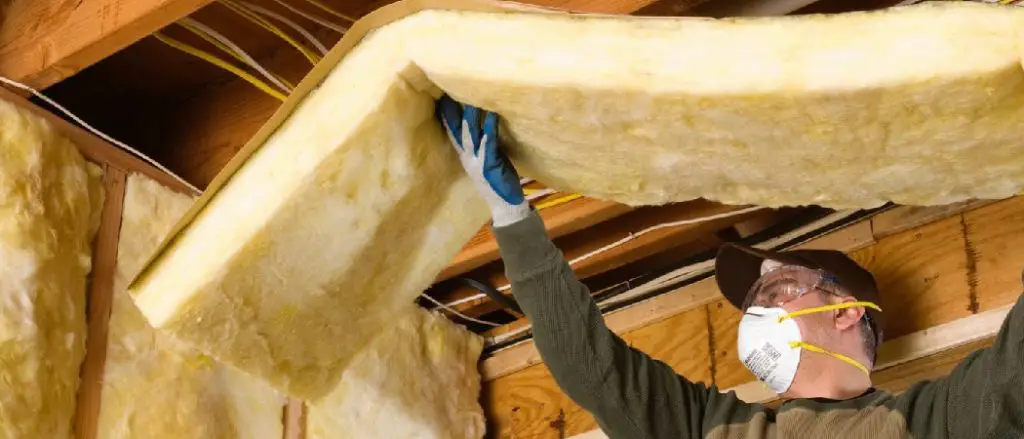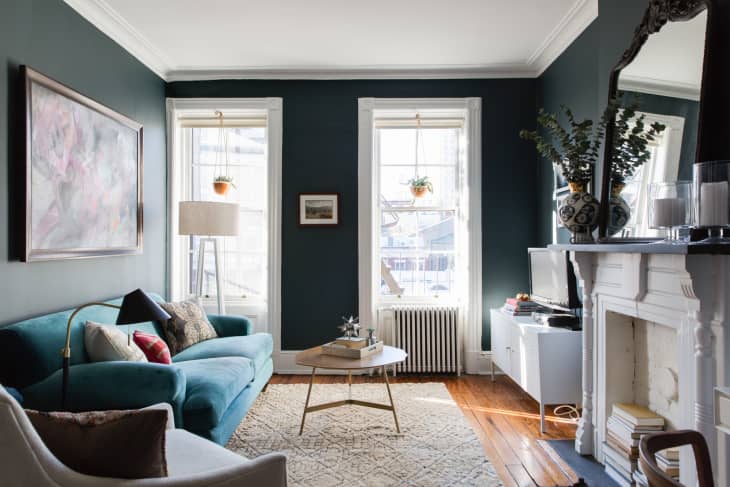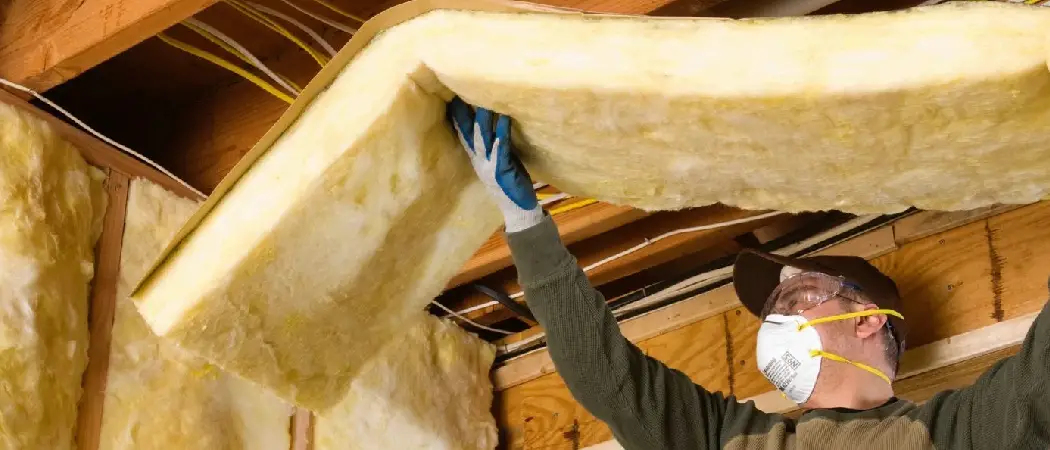To soundproof an apartment from upstairs neighbors, use soundproofing materials like acoustic panels and rugs. Ensure walls and ceilings are properly insulated to minimize noise transfer.
Living in an apartment can sometimes come with the downside of hearing noise from upstairs neighbors, which can be disturbing. Fortunately, there are effective ways to soundproof your apartment to create a quieter living environment. By implementing simple solutions such as installing soundproofing materials, sealing gaps and cracks, and adding soft furnishings, you can significantly reduce the noise transmission from above.
This article will explore practical tips and techniques to help you soundproof your apartment and enjoy a more peaceful and quiet living space.

Understanding Noise Issues In Apartments
Living in an apartment has its perks, but dealing with noisy neighbors upstairs can be a common challenge. Understanding the sources of noise and its effects on your well-being is crucial in finding effective ways to soundproof your apartment. By addressing these issues head-on, you can create a more tranquil living space for yourself. Let’s explore the common sources of noise and how they can impact your well-being.
Common Sources Of Noise
Noise disturbances can originate from various sources, making it difficult to enjoy peace and quiet in your own space. Here are some common sources of noise from upstairs neighbors:
- Footsteps: The sound of footsteps can easily travel through the floor, especially if your neighbors have hardwood or tiled flooring.
- Furniture Movement: Dragging chairs, moving tables, or rearranging furniture can create vibrations and noise that resonate throughout your apartment.
- Children: Playful and energetic kids can contribute to a significant amount of noise, particularly if they frequently run or jump around.
- High Heels: The sound of high heels clicking against hard surfaces can be particularly bothersome, especially in the early morning or late at night.
- Musical Instruments: If your upstairs neighbors are musicians or passionate about playing instruments, the sound can easily travel through the walls and disturb your peace.
- HVAC Systems: The hum of heating, ventilation, and air conditioning systems can become a constant background noise, especially if poorly maintained or outdated.
Effects Of Noise On Well-being
Noise pollution can have a significant impact on your overall well-being. Here’s how excessive noise can affect your daily life:
- Sleep Disruption: Loud noises can disturb your sleep patterns, leading to inadequate rest and ultimately affecting your energy levels and mood throughout the day.
- Stress and Anxiety: Continuous exposure to noise can contribute to feelings of stress and anxiety, making it challenging to relax and enjoy your personal space.
- Concentration Difficulties: Engaging in work, studying, or any activity that requires focus becomes more difficult in a noisy environment, leading to decreased productivity and frustration.
- General Discomfort: Constant exposure to unwanted noise can create a sense of discomfort and dissatisfaction with your living arrangements.
To effectively soundproof your apartment from upstairs neighbors, it’s important to first understand the common sources of noise and the potential impact it can have on your well-being. By addressing these issues, you’ll be able to create a more peaceful and enjoyable living space for yourself.
Credit: duracushion.com
Assessing Your Soundproofing Needs
Discover How to Soundproof an Apartment from Noisy Upstairs Neighbors. Assess your soundproofing needs by considering acoustic insulation and sound-absorbing materials. Implement effective solutions to minimize noise disturbances and create a peaceful living environment.
Identifying Problematic Areas
Start by identifying the areas in your apartment that are most affected by noise from upstairs neighbors.
Deciphering Noise Transmission Levels
Determine the level of noise transmission by listening for specific sounds that are problematic.
Budget Considerations
Assess your budget to determine how much you can allocate to soundproofing solutions.
Look for affordable options that will effectively reduce noise without breaking the bank.
To improve your living situation, evaluate the areas requiring soundproofing in your apartment.
Identify noise transmission levels and consider your budget for effective solutions.
Address problematic areas with cost-effective measures to minimize noise disturbances.
Easy And Low-cost Soundproofing Solutions
When dealing with noisy upstairs neighbors, soundproofing your apartment doesn’t have to break the bank. There are easy and low-cost solutions that can significantly reduce the impact of sounds coming from above. By implementing these simple soundproofing methods, you can create a quieter and more peaceful living environment for yourself.
Using Carpets And Rugs
Carpets and rugs are effective at absorbing and minimizing impact noise from upstairs. They act as a cushion and help to muffle the sound, especially footsteps and dragging furniture. Place thick, dense rugs in high-traffic areas and under heavy furniture to reduce the transmission of sound through the floor.
Installing Heavy Curtains
Heavy curtains are a practical and affordable way to dampen noise from above. Their dense fabric can help in reducing the amount of sound that travels through windows. Choose heavy, layered curtains that can provide an additional barrier to outside noise, creating a quieter indoor environment.
Adding Weatherstripping To Doors
Weatherstripping is an economical solution for minimizing noise intrusion through doors. By sealing the gaps around doors with adhesive weatherstripping, you can prevent sound from seeping through the openings. This simple addition can make a noticeable difference in reducing the transfer of unwanted noise.
Using Acoustic Panels
Acoustic panels are an effective soundproofing solution that can be affixed to walls or ceilings. These panels are designed to absorb and dampen sound waves, reducing reverberation and echo within your apartment. They are available in various sizes and styles, offering an aesthetic appeal while significantly improving the acoustics of a room.
Medium-level Soundproofing Measures
An apartment with noisy upstairs neighbors can be quite a challenge to live in, which is why implementing medium-level soundproofing measures is essential. By utilizing these techniques, you can significantly reduce the impact of unwanted noise and enjoy a quieter living space.
Sealing Gaps And Cracks
Begin by systematically inspecting and sealing any gaps, cracks, or openings in the walls, floors, and ceilings of your apartment. Use a high-quality acoustic sealant to ensure a tight seal and prevent noise from traveling through these openings.
Building A Bookshelf Wall
An effective and aesthetically pleasing way to soundproof your apartment is by constructing a bookshelf wall. By filling the bookshelves with books, sound-absorbing materials, and decorative items, you can create a barrier that helps reduce noise transmission from the floor above.
Using Noise-reducing Window Inserts
Install noise-reducing window inserts to minimize the impact of outdoor and upstairs noise entering your apartment. These inserts are designed to provide an additional layer of soundproofing while maintaining the functionality of your windows.
Installing Soundproofing Drywall
Consider installing soundproofing drywall to further enhance the acoustics within your apartment. This specialized drywall is designed to absorb and dissipate sound waves, reducing the transmission of airborne noise.
Advanced Soundproofing Techniques
When it comes to soundproofing an apartment from upstairs neighbors, Advanced Soundproofing Techniques can be a game-changer. By implementing these more robust methods, you can significantly reduce the impact of noise from the floor above, creating a more peaceful living environment. Here’s how you can apply advanced soundproofing techniques to tackle the issue effectively:
Soundproofing The Ceiling
Insulating the ceiling is imperative to minimize noise transfer from the floor above. Consider installing mass-loaded vinyl or a resilient channel system to create a barrier against impact noise and airborne sound. These materials effectively dampen vibrations and prevent sound waves from traveling through the ceiling into your living space.
Insulating The Floors
Applying acoustic underlayment beneath your flooring can help reduce impact noise by cushioning footfall and absorbing vibrations. Additionally, adding carpet with thick padding can further enhance sound insulation, creating a barrier against the transmission of sound from the apartment above.
Decoupling Walls
Decoupling walls involves creating an air gap between the existing wall and a new layer of drywall, thereby minimizing sound transmission. Implementing soundproof insulation within the wall cavity and using resilient clips and channels to suspend the additional drywall can effectively reduce airborne and impact noise from neighboring units.

Credit: www.apartmenttherapy.com
Communicating With Upstairs Neighbors
Learn effective ways to soundproof your apartment from noisy upstairs neighbors. Discover soundproofing techniques to minimize noise disturbances and enhance your living experience.
Having A Friendly Conversation
One of the simplest and most effective ways to address noise issues with your upstairs neighbors is by having a friendly conversation with them. Approach the situation with a positive mindset, assuming that they may not be aware of the noise they are creating. Here are a few key points to consider when having this conversation:
1. Choose the right time: Find a suitable time when both you and your upstairs neighbors are available to talk. It is essential to avoid disturbing them or catching them off guard during a busy time.
2. Be polite and calm: Start the conversation with a friendly tone, expressing your concerns about the noise levels politely. Avoid being confrontational or aggressive, as this may lead to a negative outcome.
3. Explain the problem: Clearly communicate the specific noise issues you are facing and how it is affecting your daily life. Use concrete examples to help your neighbors understand the extent of the problem.
4. Suggest potential solutions: Offer some potential solutions that may help reduce the noise, such as using rugs or carpets, rearranging furniture, or establishing quiet hours during certain times of the day.
5. Listen and compromise: Be open to hearing your neighbors’ perspective and suggestions. Find a middle ground to address the issue that works for both parties.
Drafting A Polite Letter
If you find it difficult to approach your upstairs neighbors in person, you can consider drafting a polite letter to convey your concerns. Here’s how to compose an effective letter:
1. Begin with a friendly greeting: Start the letter with a warm and courteous salutation, such as “Dear Neighbor” or “To the Residents of Apartment XYZ.”
2. Clearly state the purpose: Clearly express your reason for writing the letter, which is to address the noise issues you’ve been experiencing.
3. Provide specific details: Include specific instances or types of noise that have been disruptive to your daily life. This will help your neighbors understand the impact their actions are having on you.
4. Suggest possible solutions: Offer some suggestions for reducing the noise, such as using rugs, adding soundproofing materials, or adjusting the volume of loud electronic devices.
5. End on a positive note: Close the letter with a friendly and hopeful tone, expressing your desire for a peaceful living environment and your willingness to work together to find a solution.
Remember, effective communication and a respectful attitude can go a long way in resolving noise issues with your upstairs neighbors. Give it a try and see how it can improve your living situation.
Legal Options For Dealing With Noise Problems
Discover the legal options available for dealing with noise problems caused by upstairs neighbors. Explore effective techniques to soundproof your apartment and create a quieter living environment.
Living in an apartment complex can have its challenges, especially when you’re dealing with noisy neighbors upstairs. While open communication and simple solutions like earplugs or rugs help in some cases, there may be situations where you need to explore legal options to address excessive noise disturbances. Here are some steps you can take to tackle noise issues through legal means.
Researching Local Noise Ordinances
Start by researching the local noise ordinances in your area. Local municipalities often have specific laws and regulations in place to protect residents from excessive noise. These ordinances typically outline permissible noise levels during certain hours, as well as the consequences for violating these rules. To find this information, visit your municipality’s website or consult local government resources.
Contacting The Property Manager
If you’re experiencing ongoing noise problems with your upstairs neighbors, it’s crucial to inform your property manager or landlord. Check your lease agreement for any specific noise-related clauses and document the noise disturbances with specific dates, times, and descriptions. Share this information with your property manager to highlight the severity of the issue and encourage them to take appropriate action. Request them to remind the noisy neighbors of their obligations to maintain a peaceful living environment.
Seeking Legal Assistance
If the noise problem persists despite your efforts to resolve it with the property manager, you may want to seek legal assistance. Consider consulting an attorney who specializes in tenant rights or housing regulations. They can guide you through the legal process and advise you on the best course of action. Keep in mind that the specific laws and regulations may vary depending on your location, so it’s essential to consult a professional familiar with local laws.
Remember that pursuing legal action should be a last resort, as it can be time-consuming, costly, and potentially strain your relationship with your neighbors or landlord. However, if all other avenues have been exhausted, legal assistance may be necessary to protect your rights as a tenant and ensure a peaceful living environment.
By understanding the legal options available to you, such as researching local noise ordinances, contacting the property manager, and seeking legal assistance when needed, you can take practical steps in dealing with noise problems caused by your upstairs neighbors. Remember to prioritize open communication and finding amicable solutions, but always be prepared to explore legal avenues if necessary.

Credit: www.apartmenttherapy.com
Additional Tips For A Peaceful Apartment Living
Achieving a harmonious living environment in your apartment goes beyond soundproofing. Consider implementing the following strategies for a tranquil living space.
Using White Noise Machines
White noise machines help mask intrusive sounds from upstairs neighbors, promoting a peaceful atmosphere.
Creating A Relaxation Space
Designate a cozy corner in your apartment where you can unwind and relax to alleviate stress from noisy disturbances.
Practicing Mindfulness
Engage in mindfulness exercises to stay present and calm amidst disruptive noises, fostering a sense of peace.
Frequently Asked Questions On How To Soundproof An Apartment From Upstairs Neighbors
What To Do If You Can Hear Your Upstairs Neighbors?
To manage noise from upstairs neighbors, first, communicate politely with them about the issue. If the problem persists, use noise-cancelling devices or earplugs for personal relief. You may also consider adding carpets or rugs to reduce impact noise. Finally, if nothing works, contact the building management for further assistance.
How Do I Deal With My Upstairs Neighbors Stomping?
To deal with your noisy upstairs neighbors, first, try politely talking to them about the issue. If that doesn’t work, you can try using earplugs or soundproofing your ceiling. Alternatively, you can contact your landlord or building management to intervene.
Remember to approach the situation tactfully and calmly.
How Do I Stop My Neighbors Apartment From Making Noise?
To reduce noise from your neighbor’s apartment, try using soundproofing materials and rugs, talk to your neighbor about the noise issue, and consider speaking with the building management if the problem persists. Additionally, use earplugs or white noise machines for temporary relief.
How Do I Irritate My Upstairs Neighbors?
To irritate upstairs neighbors, make loud noises late at night, stomp on the floor, play loud music, move furniture constantly.
Conclusion
In closing, soundproofing your apartment from noisy upstairs neighbors can greatly improve your quality of life. By following the tips mentioned in this blog post, you can create a quieter living environment and enjoy peace and tranquility in your own home.
Embrace these solutions to enhance your living space.

